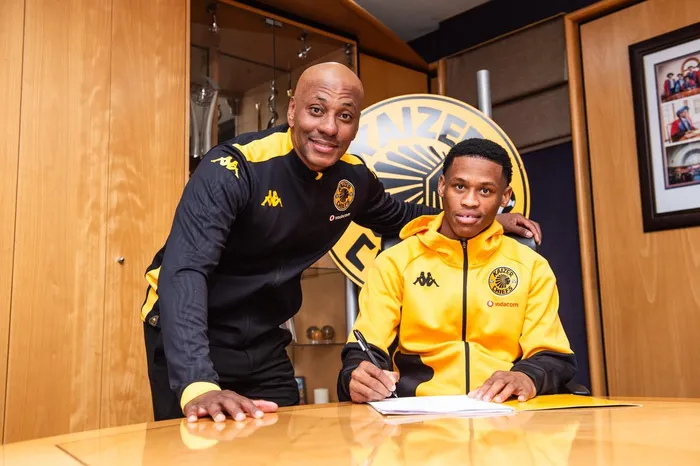The Shifting Sands of Power: How football contracts have evolved in favour of players
PSL COMMENT

Got their man Asenele Veebayi has recently completed his move from Cape Town Spurs to Soweto giants Kaizer Chiefs. Photo: Kaizer Chiefs on X
Image: Kaizer Chiefs on X
For decades, football clubs have enjoyed a near-monopoly over the careers of their players.
Contracts were binding instruments that granted employers the upper hand, often leaving players with little say over their professional futures.
But as the game has grown into a global business, the balance of power has shifted steadily toward the players themselves. The ongoing Lucas Ribeiro saga at Mamelodi Sundowns is the latest reminder of this transformation.
Ribeiro, a Brazilian forward instrumental in the Tshwane giants’ domestic dominance last season, stunned the local football scene on Thursday by revealing he had resigned from Sundowns.
His claim of “just cause” for termination, and his decision to escalate the matter to FIFA’s Football Tribunal, illustrates just how emboldened modern footballers have become.
For all their financial muscle and trophy haul, Sundowns find themselves on the back foot—forced to negotiate with a player who is now leveraging both judicial precedent and contractual loopholes to secure a move.
This is not an isolated phenomenon. Globally, the 1995 Bosman ruling reshaped football by granting players the right to leave for free at the end of their contracts.
That judgment shifted leverage dramatically, empowering footballers to dictate terms, delay renewals, or run down deals in pursuit of lucrative sign-on bonuses elsewhere.
Locally, the ripple effects are becoming clearer. South African footballers, once tied indefinitely to contracts that favoured clubs, are learning to exercise the same freedoms as their European counterparts.
Ribeiro’s case is particularly striking because it involves a club long viewed as the ultimate power in the Betway Premiership.
Sundowns’ financial strength has enabled them to tie down their stars on long-term deals and reject bids with confidence.
Yet even they are not immune to the modern player’s arsenal—agents, lawyers, and tribunals that can tilt the scales of negotiation.
Ribeiro has made it clear that if the club will not sanction his move, he is prepared to fight for his freedom. This stance would have been unthinkable in South African football just a generation ago.
For clubs, this trend presents a dilemma. The traditional model of investing heavily in transfer fees and wages while expecting loyalty in return is increasingly becoming fragile.
Players are more mobile, aware of their market value, and unafraid to challenge authority.
For smaller PSL sides, the danger is even more acute: nurturing talent only to see them leave on free transfers or engineer exits leaves little room for sustainable planning.
But for players, this evolution is long overdue. Careers are short, injuries can strike at any moment, and the industry itself is unforgiving.
Exercising contractual rights is not disloyalty—it is self-preservation.
If anything, cases like Ribeiro’s highlight the need for a healthier balance, where contracts are less about control and more about mutual respect between clubs and players.
The days when clubs alone dictated careers are over. As Ribeiro’s standoff with Sundowns shows, the modern footballer holds far more than just a pen when signing a contract—they hold power.
Related Topics: